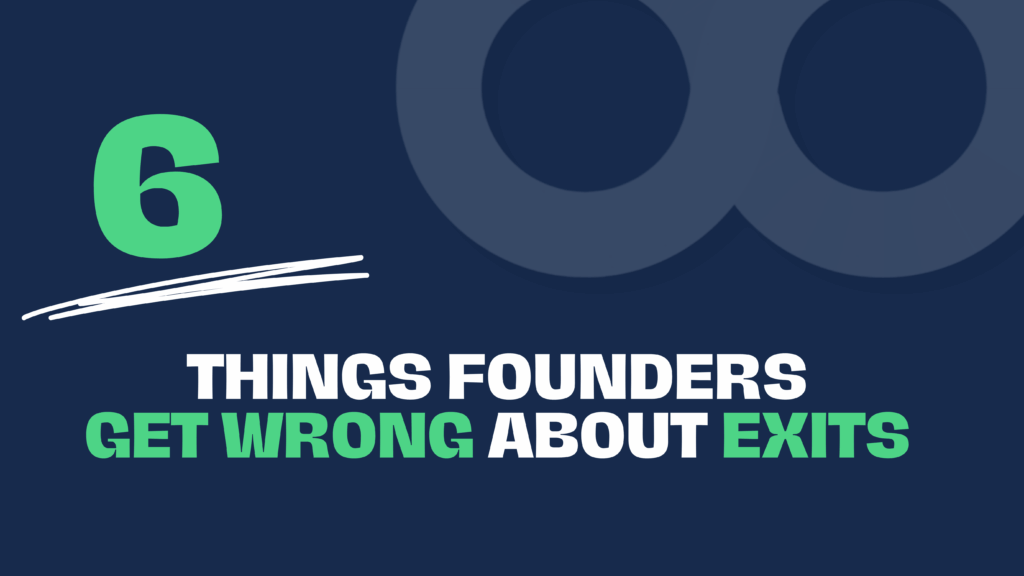6 things founders get wrong about exits

Most founders spend years, even decades, building their business. But when the time comes to step back, too many discover too late that the “obvious” exit options are not what they seem.
Exiting your business is one of the most important decisions you’ll ever make. Get it wrong, and years of hard work can vanish in a single deal. Get it right, and you can create wealth, dignity, and opportunity for the people who helped you build it.
Here’s what founders most often get wrong about exits and why more are turning to employee ownership as the smarter, fairer alternative.
1. Thinking Value Only Means Price
The most common mistake I’ve seen is assuming the best exit is simply the one with the highest headline valuation. Private equity firms may dangle attractive multiples, but what comes next? Cost-cutting, restructuring, and even relocation. Employees, the very people who created the value, can lose their jobs and communities lose local anchors.
Real value is about more than numbers.It is about protecting the culture, jobs, and reputation you’ve spent years creating. An employee ownership trust (EOT), for example, ensures that your people inherit your business and maintain your legacy and mission.
2. Leaving It Too Late
Another critical mistake is waiting until you’re ready to walk away before starting the conversation. Exits need time.
By leaving it too late, founders narrow their options. Stress rises, buyers sense urgency, and deals get rushed. In worst cases, businesses are sold at a discount, culture gets lost, and employees are blindsided.
The best exits are planned, not improvised.Employee ownership models, in particular, can work best because they follow a process and allow the leadership team to mould the framework and communicate openly with staff to ensure financing and governance are in place. Starting sooner gives you control; leaving it late hands control to others.
3. Assuming Staff Can’t Take It On
Many founders quietly dismiss the idea of employee ownership, thinking: “My team aren’t entrepreneurs. They wouldn’t want the responsibility.” On the flip side senior leadership often think they can’t afford to take on the business and think it’s too risky.
But ownership doesn’t mean every employee suddenly becomes the CEO. It means they gain a meaningful stake and a say in how the business is run. Governance is structured through a trust, advisory board or employee leadership group, not by throwing everyone into the deep end.
The truth is employees are often the ones most invested in seeing the business succeed. With the right structure and support, they can carry your legacy further than any outside buyer; and if there is no natural successor, an experienced CEO can be recruited, answering to the Board and to those sharing the ownership through the relevant governance structure.
4. Forgetting the Human and Social Impact
Exits are often seen through a purely financial lens. But for employees, the impact of an exit is personal:
- Will I still have a job?
- Will I still feel proud to work here?
- Will the business I’ve poured years into still exist in five years’ time?
Employee ownership offers a different story. Instead of fear, exits become a moment of empowerment. Even modest profit shares, like £500 a year, can help change lives.
Whilst for the locality it can be devastating: if the enterprise has been a key anchor for a local economy, but is forced, after private equity acquisition to close or relocate as ‘efficiencies’ are sought.
This is legacy in action. It is not just about what you sell for, it is about what you leave behind.
5. “EO Is Too Complicated”
Some founders worry that employee ownership is too complex, too niche, or too slow. But the truth is the model is now well established. In the UK, there are over 2,470 employee-owned businesses, a more than 600% increase since 2018 (Employee Ownership Association).
The education, process, frameworks, and support systems are already in place. In fact, transitioning to an EOT can often be smoother and less adversarial than protracted negotiations with third-party buyers. Especially when you look at Valloop’s platformand five-step process for example.
6. Missing the Bigger Picture
The final mistake is thinking an exit is the end of the journey. In reality, it is a handover. The question is: who do you hand it to?
- Private equity? To extract value for their investors.
- Competitors? To absorb your business into theirs.
- Family? Increasingly, the next generation doesn’t want to follow on but want to do their own thing.
But an employee-owned business would be a living legacy, through which employees get security, the community keeps a vital business, and you walk away knowing the values you built are protected.
Rethinking the “Easy Option”
The so-called “easy exit” is often value-deprived, if value is appropriately interpreted as meaning far more than ‘price’. It should avoid creating uncertainty, damaging morale, and unravelling culture.
The harder but wiser question is: What form of exit will protect what I’ve built?
For many founders, employee ownership could be the answer.
Because when you get your exit right, as you leave, you can create a significant entry point for everyone else within the enterprise.





